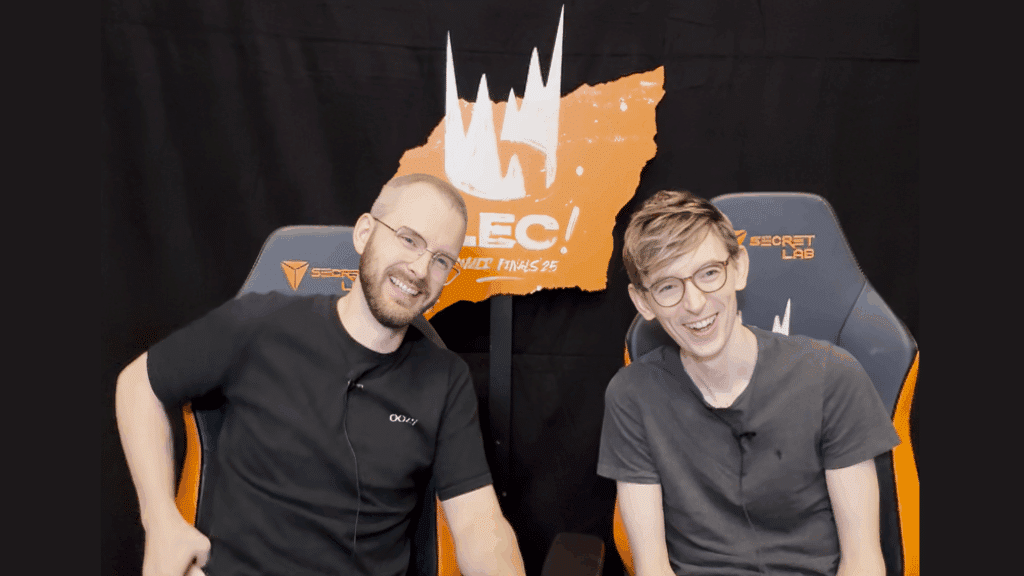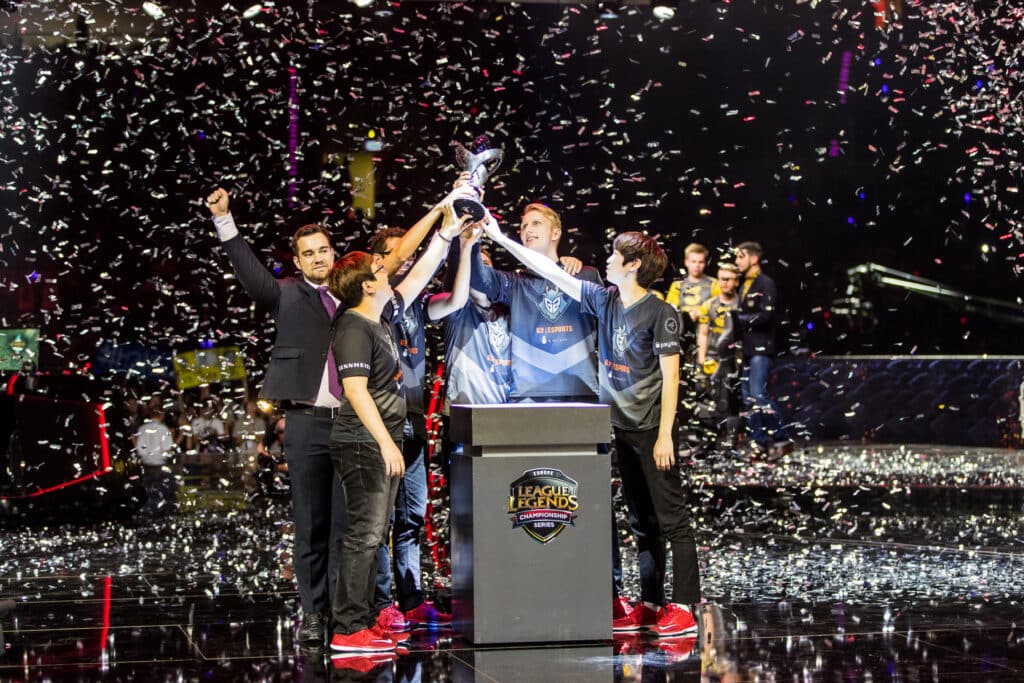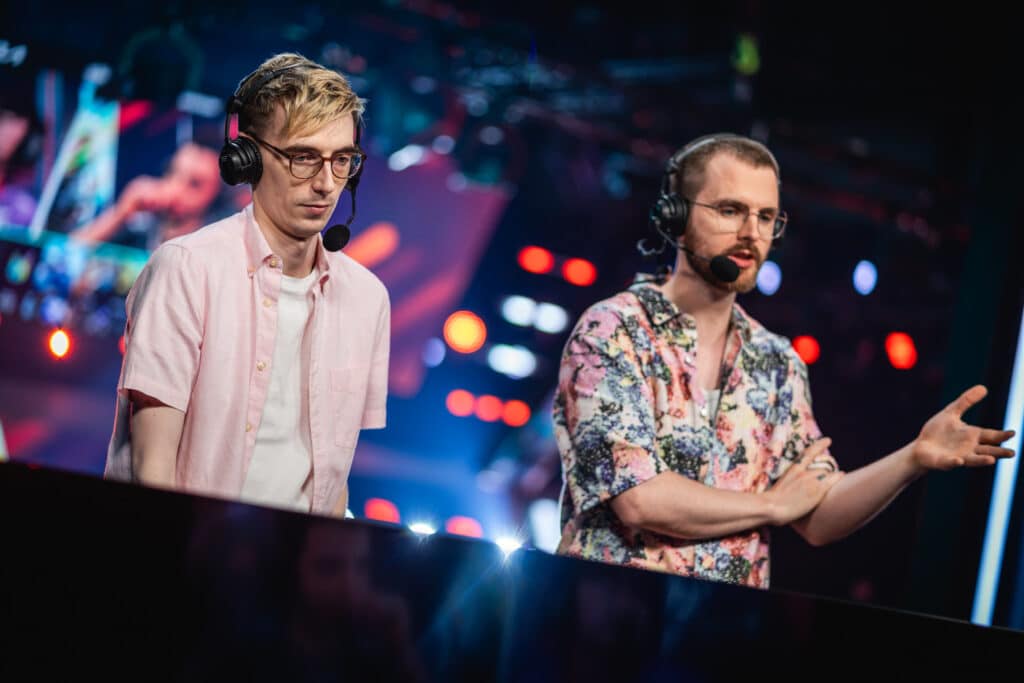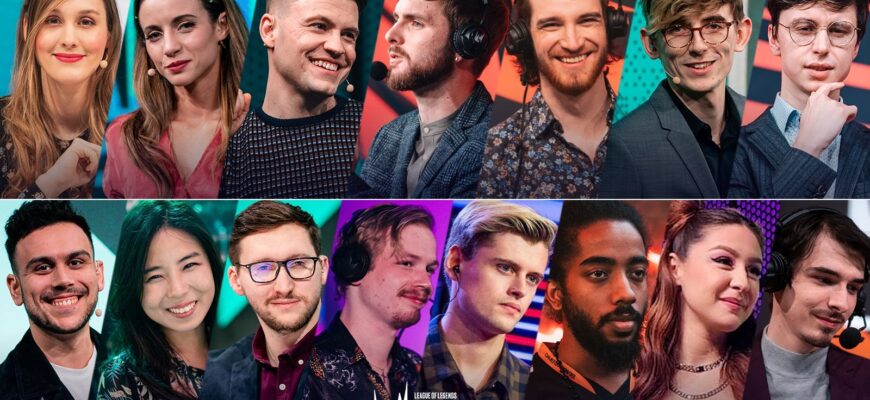In the vibrant, fast-paced world of esports, where pixels clash and digital heroes rise, the narrative often takes center stage. Yet, who truly weaves these compelling tales? Beyond the thrilling plays and strategic masterstrokes, a cadre of dedicated individuals shapes how millions experience the drama: the esports casters. For nearly a decade, the League of Legends EMEA Championship (LEC) has been a beacon of character-driven broadcasts, and at its heart stand figures like Andrew ‘Vedius’ Day and Daniel Drakos. Their voices, infused with personality and profound game knowledge, have transformed matches into memorable sagas. But what lies beneath the surface of their seemingly effortless commentary? It’s a philosophy that champions the game, the players, and an intricate balance between entertainment and education.
The Unseen Craft: Beyond the Mic
While many perceive casting as simply describing what happens on screen, Drakos and Vedius reveal a much deeper, more nuanced approach. Their mantra, “the show isn`t about you,” resonates as a foundational principle. It’s a quiet reminder amidst the roaring crowds and spotlight glare that their role isn`t self-aggrandizement, but rather amplification. They are the conduits through which the raw energy of competition flows, honed and articulated for an audience ranging from seasoned veterans to curious newcomers. This dedication requires relentless preparation, not just of game mechanics, but of player histories, team dynamics, and the meta-narratives brewing within the league. It`s a craft that demands both spontaneity and meticulous foresight, a blend rarely seen outside of live theater, but with the added pressure of millions watching in real-time.

Storytelling as the Core: Adapting to the Shifting Tides
The landscape of competitive League of Legends is a constantly shifting tapestry. Teams rise, fall, and reinvent themselves, demanding that casters adapt their storytelling on the fly. Drakos and Vedius recount the era when Fnatic`s long dominance gave way to the ascendance of G2 Esports, a team that, for better or worse, became the central antagonist (or protagonist, depending on your allegiance). Vedius candidly admits to “creative frustration” with G2’s relentless success, highlighting that while dominance brings recognition, variety fuels richer narratives. Drakos echoes this, noting that defeating G2 often became the `baseline for every story` – a challenging yet ironically consistent plot device. Yet, even as G2 continued its trophy haul with a 17th domestic title, both casters express optimism for a future with broader competitive parity, promising a more diverse palette for their narrative brushstrokes. The 2025 season, despite G2’s victory, offered glimpses of renewed parity, reminiscent of more balanced years where multiple teams shared the spotlight.

Beyond Bias: The Pursuit of Objective Passion
One of the most persistent misconceptions about esports casting, particularly in the passionate fan communities, is the accusation of bias. Drakos firmly dismisses this, asserting that genuine, conscious bias is “really rare.” While Vedius concedes to a natural “EU bias” in international competitions – a common, almost patriotic sentiment among regional commentators – he stresses that professionalism and objectivity remain paramount. When the mic is hot, personal allegiances are shelved. The goal isn’t to cheerlead but to provide accurate, respectful commentary for both sides, ensuring that every player and team is represented fairly. As Drakos jokingly points out, even when facing a clearly dominant opponent like Gen.G, personal excitement is carefully managed to maintain broadcast integrity. This extends to a collaborative spirit among international casters, where sharing insights ensures that “the pros are best represented” across global broadcasts, fostering a community that values authenticity over favoritism.
The Dual Role: Entertainer and Educator
Perhaps the most intriguing facet of the caster`s philosophy lies in their dual identity: are they entertainers or educators? For Drakos, the answer leans heavily towards entertainment, albeit with a crucial caveat: “Your job, first and foremost, is to be an entertainer, but the show isn’t about you — it’s about the game, the competition, and the story of these players.” He argues that the inherent drama of League of Legends, exemplified by legends like Faker, is so captivating that a caster`s primary role is to bring that entertainment to life. Vedius, in his role as a color caster, prioritizes informing the viewer, ensuring they “understood what just happened.” He differentiates between educating (providing context and significance) and teaching (breaking down every mechanic), aiming for clarity without overcomplication. This blend of showmanship and insightful analysis ensures that every pivotal moment, regardless of a viewer`s familiarity with the game`s intricate mechanics, feels significant and engaging, a subtle art form balancing hype with clarity.

The Ever-Evolving Stage: Shaping Future Narratives
The unique complexity of League of Legends, far beyond simpler “point-and-shoot” esports titles, places a heavy burden on its casters. They aren`t merely describing events; they are interpreting a rapidly unfolding tactical ballet, guiding the audience through moments that might otherwise seem impenetrable. Drakos remarks on the rarity of discussions about the “philosophy of casting,” yet it`s precisely this underlying intellectual framework that elevates their work beyond mere live commentary. After almost a decade of shared microphones and countless hours of live broadcasts, Drakos and Vedius have not only witnessed the LEC`s evolution from predictable rivalries to a richer, more competitive ecosystem but have actively shaped how those stories are told. Their commitment ensures that whether it`s a veteran`s redemption, an underdog`s triumph, or the sheer intensity of a grand final, every moment resonates deeply with the audience, leaving an indelible mark on the esports landscape.
A Legacy Forged in Commentary
Ultimately, the philosophy of esports casting, as articulated by Drakos and Vedius, is a testament to the dedication required to transform competitive gaming into a global spectacle. It`s a craft built on respect for the game, its players, and its passionate fanbase. It`s about being the voice that elevates the extraordinary, clarifies the complex, and above all, makes sure that the show – the grand, electrifying drama of League of Legends – remains the star. Their ongoing evolution in storytelling and commitment to authenticity serves as a benchmark for aspiring commentators, proving that the most compelling narratives are often found not just in the plays themselves, but in the voices that give them meaning.









